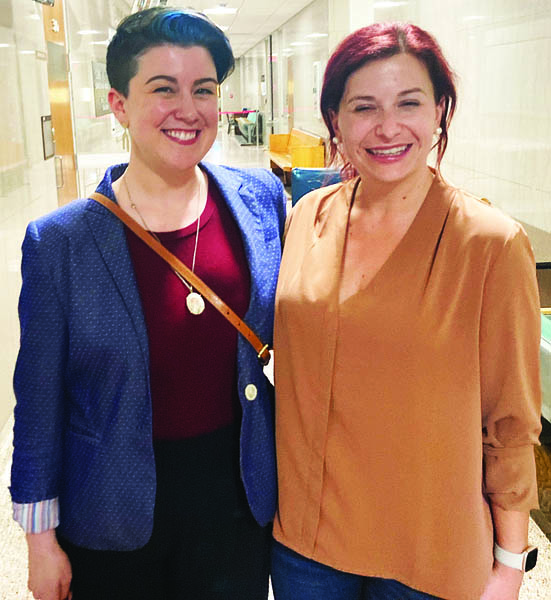Task force to address human trafficking concerns
A new task force will look at human trafficking in Anderson County.
The resolution to appoint members was passed by the Anderson County Commission May 15, and Mayor Terry Frank has signed it.
The committee has not met, however.
The resolution defines human trafficking as “a crime involving the exploitation of a person for labor, services or commercial sex,” and describes it as the “second-fastest-growing criminal enterprise in the state of Tennessee.”
The task force’s mission is “to endeavor to reduce, abrogate and strive to eradicate human trafficking within the borders of Anderson County.”
The commission selected Third District Commissioner Shelly Vandagriff, Second District Commissioner Denise Palmer and Fourth District Commissioner Shain Vowell for the task force.
It will also include Frank, District Attorney General David Clark and Anderson County Sheriff Russell Barker or people designated by them.
Fourth District Commissioner Tim Isbel made the motion to pass the resolution, and Second District Commissioner Michael Foster seconded. All commissioners present approved the motion, although First District Commissioner Tyler Mayes was not present.
Family trafficking more common than by strangers
Brittany Thompson, director of adult services for the Community Coalition Against Human Trafficking, spoke at the Anderson County Operations Committee’s April 10 meeting. That group provides therapy, advocacy and care coordination for trafficking victims.
Thompson said the coalition has had five referrals of youth under age 18 since January in Anderson County.
“Five’s a big number, because we don’t want any,” Thompson said.
She said law enforcement and the Department of Children’s Services referred these youth.
Her organization’s full 33-county area had 407 referrals, 213 of whom were youth.
She said another organization, Engage Together, listed Anderson County as one of the Top 10 counties in Tennessee for factors that make it vulnerable to human trafficking.
“A lot of times when we think of trafficking, we think of the sensationalized version of Liam Neeson in ‘Taken,’ where kids are being kidnapped. There’s a white van that’s circling Walmart, and they’re giving out roses, and they’re pulling people into their vans,” Thompson said.
But the coalition’s website lists trafficking by family or intimate partners as more common than trafficking by strangers, and Thompson focused her presentation on those types of situations.
“We’re talking about either someone in their family that is trafficking them or we’re talking about someone they have shown a vulnerability to that has exploited it, and now they believe that they’re in some type of relationship with that person, and that person is exploiting that relationship to get them into sex trafficking,” Thompson said.
“A lot of the time with youth, it’s familial trafficking, where most of the time it’s mom,” Thompson said.
“And especially in rural communities, that’s the most-common trafficking that we are seeing, where mom needs to get a fix.
“She needs to get something for her drug habit, and she is using her children out of convenience.
“A lot of the time, it’s a multi-generational issue, so mom was trafficked by grandma, and grandma was trafficked by great-grandma,” Thompson said.
“It’s just something that keeps being passed down, and for them it’s a normal way of life.”
Other traffickers pose as intimate partners, she said. Situations like poverty, running away, drugs and alcohol in homes and being in foster care leave people vulnerable to intimate-partner traffickers.
“They don’t feel loved, they don’t feel appreciated, they don’t feel important,” she said regarding psychological factors that can leave youth vulnerable and easier to manipulate.
“They build this connection with them, and they shower them with love and affection,” Thompson said of the intimate-partner traffickers.
“Then they start saying, ‘OK, I did this for you, now you need to do this for me,’ and that’s where that trafficking comes in there.
“They think they are in a relationship, and this is part of the relationship,” she said of the victims.
You can find out more about the coalition at growfreetn.org, or email it at info@ccaht.org.
Thompson recommended the coalition’s referral hotline for emergency calls: 865-292-0285.
The main phone number for the coalition is 865-674-5347.



